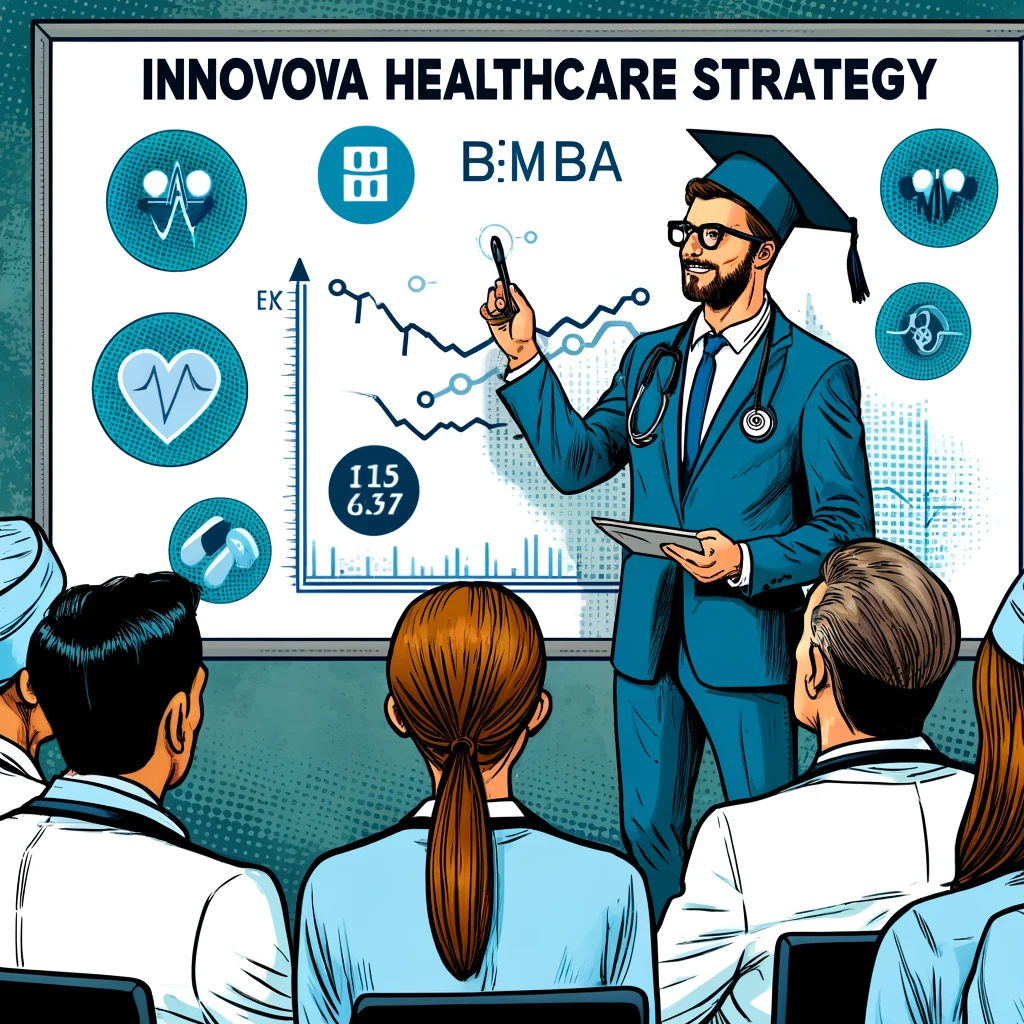Table of Contents:
- Understanding the Impact of Business Skills in Healthcare
- Navigating Challenges in Healthcare with an MBA Education
- Innovations in Healthcare Management Facilitated by MBA Insights
- Leadership Qualities Essential for Healthcare Administrators
- The Future of Healthcare Management and the Influence of MBA Graduates

Key Takeaways
- Business expertise, augmented by an MBA healthcare management background, is transforming patient care and healthcare systems.
- MBA qualifications empower healthcare professionals to navigate the industry’s regulatory and financial challenges assuredly and ethically.
- Healthcare is experiencing a surge of innovation, primarily attributed to the strategic and analytical prowess honed through MBA programs.
- Healthcare administration requires a specific leadership profile often cultivated within MBA settings, leading to more effective healthcare delivery and team dynamics.
- As global healthcare evolves, particularly in dealing with health crises and reforms, MBA graduates are poised to become integral leaders and reformers in the sector.
Understanding the Impact of Business Skills in Healthcare
Integrating strong business principles into healthcare management is more than a value-add; it’s a transformative force for the sector. An MBA background brings much-needed fiscal discipline and systematic efficiency to healthcare systems worldwide. Managers with such interdisciplinary knowledge are adept at handling budgetary constraints and excel at implementing operational changes that enhance patient care. This convergence of business acumen with healthcare expertise has encouraged resourceful thinking and fostered innovative solutions to longstanding problems.
When healthcare leaders apply strategic management principles to their operations, the benefits extend beyond financial stability. It touches everything from patient wait times and service access to staff allocation and emergency response systems. For instance, by applying concepts like lean management and Six Sigma, healthcare managers minimize waste and reduce errors, directly translating to better patient outcomes and higher satisfaction. The ripple effect of these business strategies within healthcare settings cannot be overstated, as they often lead to more patient-centric service models that prioritize efficiency and quality in equal measure.
However, successfully executing such strategies requires more than theoretical knowledge—it demands hands-on experience and case-based learning that a comprehensive program in MBA healthcare management can provide. The compelling case studies academic institutions offer to elucidate the real-world applicability of business strategies in hospital settings and healthcare institutions. These examples demonstrate how judicious management can lead to tangible improvements in patient care quality while controlling costs.
Navigating Challenges in Healthcare with an MBA Education
MBA graduates step into the healthcare world equipped with a robust toolkit for navigating its intricate landscape forged through rigorous education and practical learning. Take regulatory complexities, for instance. Leaders with an MBA background are particularly adept in an environment where policy shifts and compliance standards regularly alter the playing field. They can assist their organizations in proactively adapting to these changes, minimizing risks, and avoiding expensive fines because they are aware of their implications.
Financial management is another realm where the MBA graduate shines in healthcare settings. The healthcare industry operates on a uniquely challenging economic model, with factors like insurance reimbursements, patient service pricing, and governmental funding playing influential roles. The adeptness at reading financial statements, managing complex budgets, and projecting financial health is crucial for these professionals. They ensure the sustainability of healthcare providers without compromising the quality of care delivered. Furthermore, MBA programs instill the importance of ethical practices, molding leaders who value patient privacy and uphold the integrity expected in healthcare dealings—a facet perhaps more critical in this field than any other.
Innovations in Healthcare Management Facilitated by MBA Insights
MBA graduates are often the precursors of innovation in the healthcare industry, leveraging technology and data for better decision-making processes. They are at the vanguard of integrating advanced analytical tools that predict patient flow, improve resource allocation, and enhance patient experience. This ability to translate data into actionable insights is streamlining operations across health systems. Articles reflect on how a business school curriculum can elevate the application of data in healthcare.
Strategic planning, another notable strength of MBA curricula, is central to executing new healthcare delivery models. It is through models like co-managed care and integrated healthcare systems that MBA graduates are making a marked difference. Their understanding of organizational dynamics and a knack for fostering partnerships and collaborations are instrumental in pushing forward pilot programs and innovation labs within healthcare institutions—often with spectacular results.
Leadership Qualities Essential for Healthcare Administrators
Leadership within healthcare must transcend operational mastery to encompass a broader sense of stewardship and commitment—qualities nurtured in MBA programs. In a sector where the well-being and lives of individuals are at stake, leaders are tasked with the significant responsibility of guiding teams through high-stress situations while maintaining a steady vision focused on patient care. This dual capacity for empathy and efficiency can be rare, but MBA programs specialize in honing this delicate balance. Articles emphasize MBA leadership’s impact in reshaping healthcare.
Moreover, MBA healthcare programs at Youngstown State University strongly emphasize leadership development, preparing graduates to lead with integrity and compassion in settings where such traits are appreciated and imperative. By fostering a professional growth and lifelong learning culture, these leaders uplift healthcare teams and encourage a workplace environment where innovation thrives. The training and development programs MBA healthcare managers champion are the breeding ground for the next generation of healthcare professionals—progressive, patient-focused, and business-savvy.

The Future of Healthcare Management and the Influence of MBA Graduates
The future of healthcare management stands at an exciting crossroads, with MBA graduates leading the charge toward innovation and reform. The changing demographic patterns, technological advancements, and the increasing complexity of global health challenges have all underscored the need for responsive, adaptive healthcare leadership. As industries across the board grapple with the aftermath of global health emergencies, the spotlight has turned to MBA-educated professionals to guide healthcare organizations through uncharted territories.
Perceptive to the broader implications of healthcare delivery, from policy changes to international collaborations, these leaders are expected to guide substantive reforms that will accommodate the next leap in patient care and healthcare technology. The healthcare reforms on the horizon are poised to benefit from the strategic thinking, ethical grounding, and cross-functional expertise that MBA programs endow upon their graduates. These individuals are anticipated to be at the forefront of policy discussions, wielding their insights to shape healthcare for a population ever more aware of and invested in their health outcomes.
